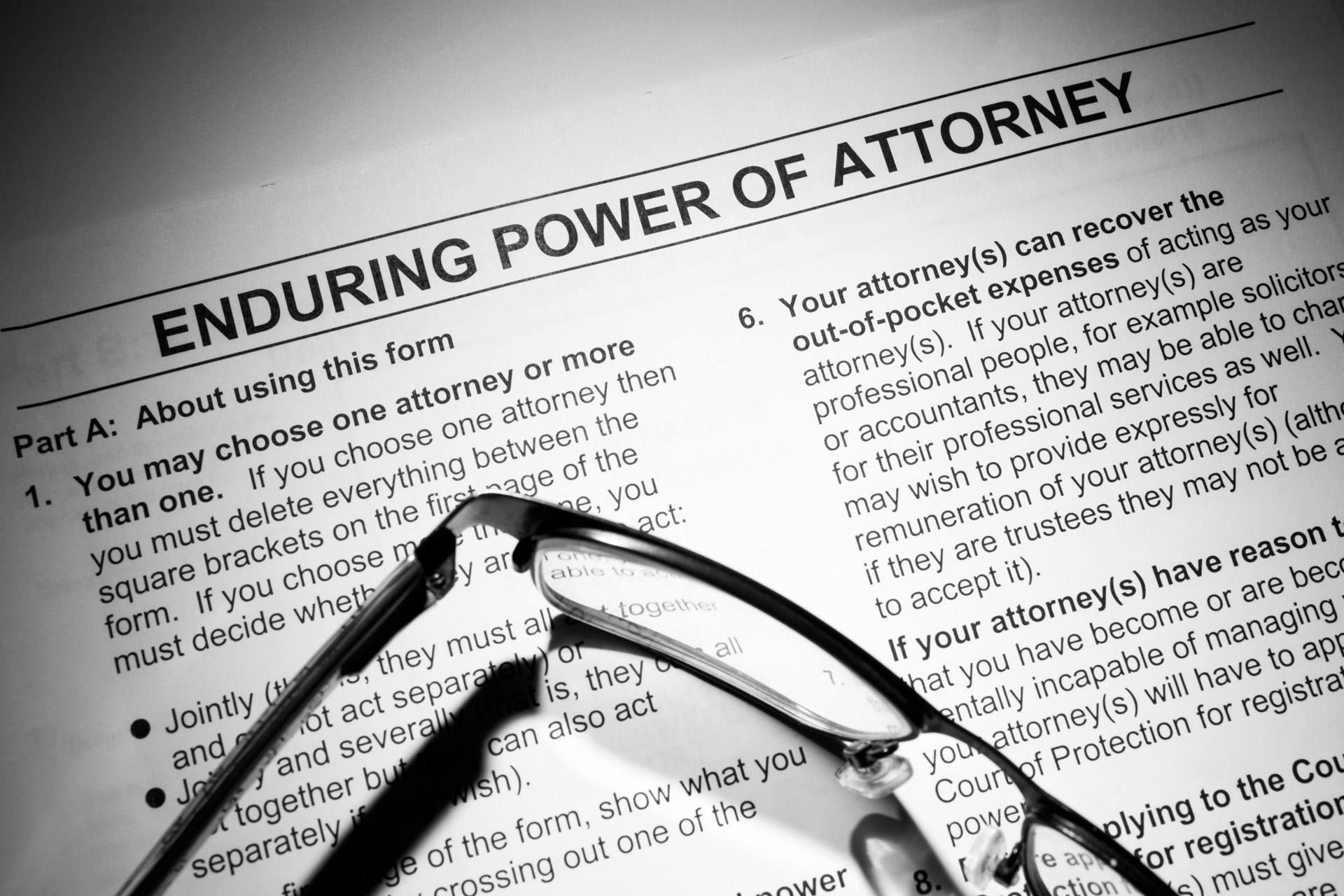Mental Incapacity and Deputyship
Have you thought about the possibility that you might one day become unable to make day-to-day personal decisions?
If not, you’re not alone. Few of us address our minds to this, probably because we’re so busy living in the here and now. Of course, there’s also the fact that it’s not something we really want to have to consider. But there is a lot to be said for understanding how provisions are made to help people who find themselves in that position.
One possibility is that an Attorney will be brought in to make decisions on behalf of the person who, perhaps through illness or injury has lost the ability to do so. An Attorney (usually a family member or close friend) is appointed via a Power of Attorney, which is a legal document put in place while its maker has mental capacity. We regularly talk to clients about making a Lasting Power of Attorney, which takes effect if mental capacity is lost. It allows you in advance to select the people you think would be best placed to take care of your financial affairs, your property, and your health and wellbeing. While you may never have to call on your Lasting Power of Attorney, it’s comforting to know that it’s there should you need it.
But what if you lose mental capacity without having put that type of arrangement in place? All is not lost. A specialist court called the Court of Protection will make sure that someone is given the job of making decisions on your behalf. That person is called a Deputy. He or she must be at least 18 years old and could, like an Attorney, be a family member or a friend. Solicitors like us, and other professionals, are sometimes called on to be Deputies – particularly where the needs of the person who has lost mental capacity call for specialist knowledge.
Deputies are usually appointed to take care of financial and property matters, like paying bills on behalf of the person and managing their investments. They can also be involved in making decisions about a person’s care, health and welfare – where they should live, and what type of medical treatment they should have, for example. It is quite common for more than one Deputy to be appointed to each role, so it’s important that they are able to work together with one common purpose.
A Deputy must act in the best interests of the person who has lost mental capacity. Their role will be strictly defined by the Court of Protection, and the things they do are overseen by the Office of the Public Guardian. So, there is a fair bit of focus on making sure that Deputies are competent and that they make informed and well-judged decisions.
We often advise the families of people who have lost mental capacity, and we support them through the process of having their loved one’s affairs and daily life decisions taken care of. We also support those who have been appointed Deputies. It’s not an easy role to take on, particularly where the emotions involved in dealing with the effects of mental incapacity are in the mix. It can be difficult to see loved ones in a vulnerable position, and it’s sometimes hard to know what to do for the best when it comes to making important decisions about their financial security and their care.
This is something we should all be thinking about. As individuals, we may want to start organising our affairs and putting in place plans for how we would like to be taken care of in the event that we go on to lose mental capacity. A Lasting Power of Attorney is a really useful option to consider, and it’s relatively quick and easy to prepare with help of a specialist Private Client solicitor. But on a more basic level, perhaps communicating with our loved ones about these kinds of issues – our thoughts and feelings about care and provision in the event that illness or injury takes away our ability to make our own decisions – is a good thing to do. The more willing we are to talk about these difficult subjects, the more prepared we’ll all be to tackle them with confidence, and in the right way, if it comes to it.
For advice about any legal issues around the loss of mental capacity, or deputyship in particular, contact us 0808 256 2917 or email [email protected].








